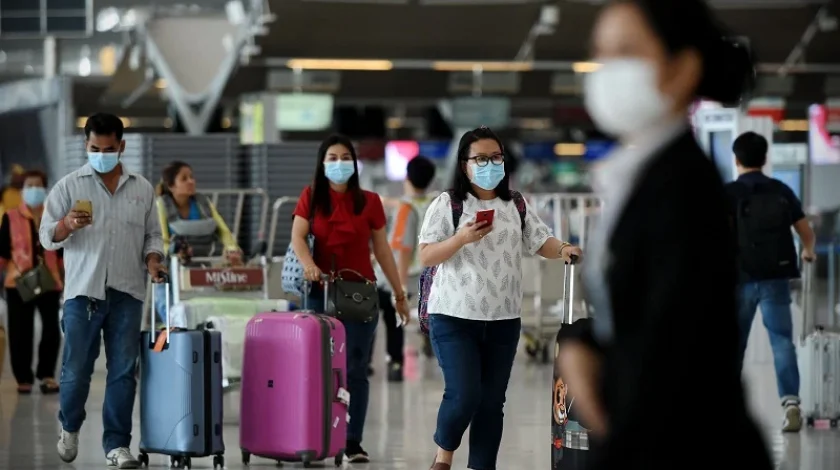Australia’s immigration intake was an unsurprisingly hot topic throughout the recent election campaign period, and now that Scott Morrison’s Coalition government has emerged victorious, the Australian public has been left asking the question: “what should we expect Australia’s immigration policy to look like?”.
Since March, Scott Morrison has been proposing to reduce Australia’s annual permanent migration cap from 190,000 to 160,000, and it seems that the cap is likely to remain at this level for at least the next 3 years. To clarify – the permanent migration numbers to which this cap refers include permanent visas such as skilled working visas, as well as permanent visas for family members, partners, refugees and investors.
The rationale for the reduced cap has been that a reduction in permanent migration, together with both stronger incentives for migrants to settle in regional Australia and stricter requirements for temporary skilled visas, will help to ease congestion within the capital cities.
However, annual permanent migration was at 162,000 last year, so reducing the permanent migration cap to 160,000 may not make a real difference to congestion levels. It seems that from a congestion perspective, it is actually migrants on temporary visas (including temporary skilled workers, visitors and students) who are the primary contributors to population growth within Australia’s capital cities.
This of course leads us to ask whether, if temporary skilled workers are contributing more to congestion than permanent migrants, businesses should expect the Coalition to further tighten its policy on employer sponsored temporary skilled workers in an effort to ease congestion.
When the 457 visa was overhauled in March 2018 and replaced with the Temporary Skill Shortage (subclass 482) (“TSS”) visa, there was resistance from the business community, which held concerns (and still does) that changes to the employer sponsored skilled migration scheme would damage Australian businesses who relied on overseas skilled migration. It therefore seems unlikely that the Coalition government will be making any major changes to the current temporary skilled migration scheme.
Although some people may be concerned that skilled migration has the very high potential to lead to a decrease in jobs available to Australians, this concern is often misplaced when the skilled migration scheme is used for genuine skill shortages. For example, the recent NSW infrastructure projects have required tunnelling and construction skills that have not been required in NSW in the previous 50 years, so the NSW labour force simply does not have an extensive pool of labour to draw upon with the necessary skills and expertise. Many other businesses face the same type of skills shortages.
Although many businesses rely on temporary skilled visas (rather than permanent skilled visas, which are being reduced to a cap of 160,000), if the option of converting temporary to permanent migration is removed as an option for many skilled migrants, migrating to Australia only temporarily becomes unattractive. Therefore, reducing the permanent migration intake could have an impact on temporary skilled visas as well, due to the fact that skilled migrants may believe that their chance of obtaining permanent residency has been reduced as a result of the dual effect of increased complexities in obtaining a visa (either temporary or permanent), and the reduced chances of transitioning to permanent visas, as a result of the apparent reduction to the permanent migration cap.
In fact, since the TSS visa was introduced in March 2018, there has been a 28.4% drop in the number of TSS visa applications, and as a result of more stringent requirements, there has been a 26% drop in the number of TSS/457 visas granted by the Department of Home Affairs, compared to the same period in the previous year. This means that less people are applying for the TSS visa, as compared with the preceding 457 visa scheme, and similarly that less applicants are getting their TSS visas approved. The cost of applying for a visa has also increased, as more employers turn to migration agents and lawyers to assist with navigating the visa requirements.
Key Takeaway
The Coalition’s migration policy involves increased incentives for immigrants to settle in regional Australia, as well as tightened requirements for temporary skilled visas and a reduced cap on permanent migration.
The effect of these policies may be that it will become increasingly difficult for businesses to obtain skilled migrants, either on a temporary or permanent basis. On the other hand, tightening the requirements could make it easier for employers to get TSS visas approved, if the system is now set up in a way that attracts genuine skill shortage applications.
If you have a query relating to any of the information in this piece, or you would like to speak with a Registered Migration Agent and Employment Lawyer with regard to your own Business Migration matter, please don’t hesitate to get in touch with Coleman Greig’s Workplace team today:














